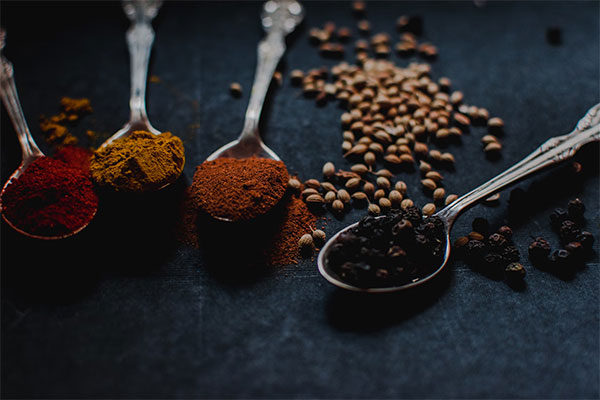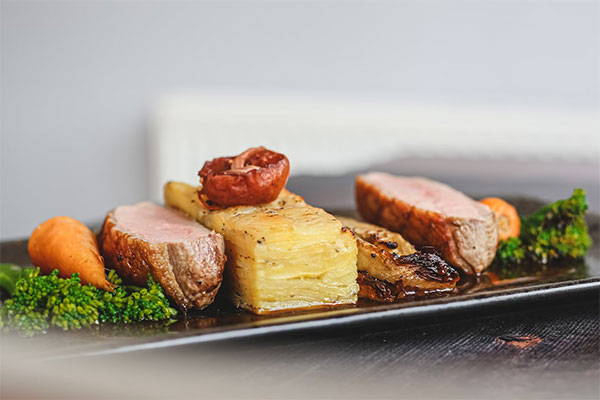A brief history of British cuisine
A cuisine made of influences
Although British cuisine suffers somewhat from its bad reputation these days, this was not always the case. Having passed through numerous influences before becoming what it is today, Anglo-Saxon gastronomy was for a time recognized throughout the world: even in the Middle Ages, the tables of Kings were overflowing with exotic spices imported mostly by the Norman invaders.
With the expansion of the British Empire, the country became a major player in the spice trade: back in the United Kingdom, the officers of the East India Company introduced curry as well as certain spicy condiments and particularly chutney, this sauce made from fruit or vegetables cooked with vinegar, sugar and spices, which is an integral part of British cuisine today. Spicy and refined dishes therefore appear on the tables and contribute to the excellent reputation of British cuisine.
Another consequence – and not the least important – of trade between the United Kingdom and Asia: tea! Brought from China in the 17th century, the drink first became popular within the royal court and then invaded the numerous "coffee houses" of the time where it was also consumed by the working classes.
Thus, since the Middle Ages, the United Kingdom had absolutely nothing to be ashamed of its gastronomy. So what could have caused this “decline”?
Some place it in the Victorian era, in the second part of the 19th century: Queen Victoria and the bourgeoisie then imposed a more basic, even poor, diet, in the spirit of the Protestant morality which governed the puritan society of the time, a far cry from the pleasures of the table once so dear to the British.
Other experts blame the decline on rationing policies implemented during World War II and maintained until the 1950s – a period of deprivation that would have pushed people to abandon the pleasures of the palace and concentrate solely on survival from basic foods, uncooked and therefore not very tasty. A trend reinforced by the Industrial Revolution which very quickly made workers break away from any peasant roots by encouraging industrial food that was quick to prepare for workers who no longer had time to cook. It was during this period that Fish and Chips established itself as the "national dish", and that the dietary trend of "fast food", widely adopted in the United States, also spread to Great Britain.

And today ?
So yes, the British's recent culinary past has given them very little to brag about. But the various food epidemics such as mad cow or foot-and-mouth diseases, as well as the increasing media coverage of chefs, have triggered a real awareness across the Channel.
The British are now turning to healthier products: they have even become the biggest consumers of organic products in Europe! Meat-based dishes are gradually being abandoned in favour of vegetarian meals, and if there is meat (since no crisis, however serious, could deviate the British from the traditional Sunday Roast), it comes more and more from local farms. At the same time, British people attribute an increased importance to local products, cooked with the greatest of care by chefs worthy of the name in the gastropubs which have been springing up all over the country since the 1980s.
The media also played a key role in popularizing this new cuisine: open any national daily newspaper and you will find at least one page devoted to gastronomy. On the radio, it is the BBC and its "Food Programme" which has been exploring all aspects of it for over 40 years now. Since the 1990s, increasingly numerous and globally successful cooking shows, hosted by chefs such as Gordon Ramsay, Jamie Oliver and Delia Smith, have helped to bring it back up to date. These chefs have helped to restore the image of this gastronomy that has been so long denigrated by creating dishes that are at once innovative, convivial and with multiple influences.
Because if there is one thing that characterizes Anglo-Saxon cuisine today, it is its multiculturalism: far from the chauvinism of French or Italian gastronomy, London in particular, a true theatre of creativity and innovation, has seen its culinary landscape expand and diversify considerably in recent years. The influence of Indian cuisine is still present; "curry" (which here designates a whole category of dishes in spice-based sauce) is also one of the British's favourite dishes. Veeraswamy, the oldest Indian restaurant in the United Kingdom, has become a true institution which alone represents this historic mix of British and Indian know-how.
British cuisine also displays the colours of the Mediterranean, a culinary approach popularized by chef Jamie Oliver. In addition to these two trends, London is full of addresses and cuisines with multiple identities and origins: Vietnamese, Japanese, Nigerian, Pakistani, Polish... This variety, this profusion of cuisines has made London the new capital of gastronomy and has led to many French chefs such as Alain Ducasse, Anne-Sophie Pic, Hélène Darroze and Joël Robuchon have settled there.
It seems that the day has come for the British to free themselves from the culinary clichés that are as inseparable from them as the cloud of milk from the 3 p.m. cup of tea.

And to find out more about Anglo-Saxon cuisine and its secrets, check out our fine food guide here!
Article written by Camille L.
